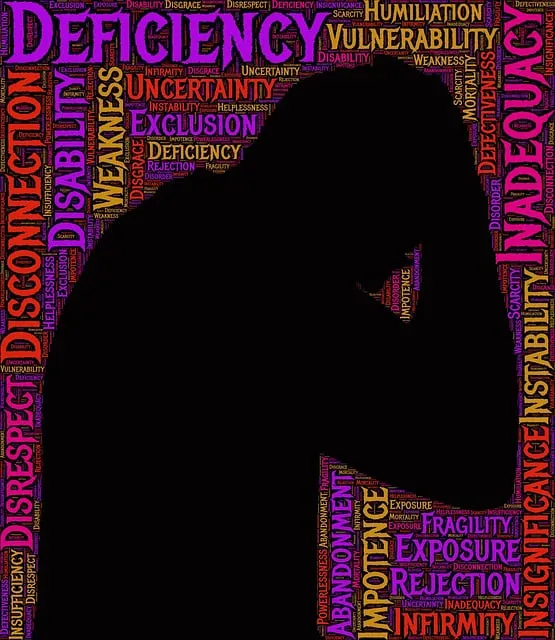Emotional Intelligence (EI), crucial for leadership, is promoted by a 'Kaiser' through mental health strategies. This includes self-care routines, self-awareness exercises for managing emotional triggers, and fostering open communication. By focusing on EI, Kaiser prevents depression, boosts productivity, and enhances overall mental well-being. Their comprehensive approach to mental health covers burnout prevention tools, stress management workshops, and social skills development, benefiting personal and professional relationships. Superior does Kaiser cover mental health by offering innovative methods for emotional regulation, conflict resolution, and stronger connections, ultimately enriching lives through enhanced empathy and well-being.
Emotional intelligence (EQ) is a powerful tool that significantly impacts personal growth and success. This article explores the multifaceted aspects of building EQ, drawing insights from renowned studies like the Kaiser’s research on mental health. We’ll delve into strategies to enhance self-awareness, improve social skills, and manage emotions effectively. By understanding these key elements, you’ll gain a competitive edge in both personal relationships and professional pursuits, ensuring superior mental health management.
- Understanding Emotional Intelligence: Unlocking the Kaiser's Secrets
- The Role of Self-Awareness in Mental Health Management
- Enhancing Social Skills for Better Relationships
- Strategies to Regulate and Manage Emotions Effectively
Understanding Emotional Intelligence: Unlocking the Kaiser's Secrets

Emotional intelligence (EI), often discussed in the context of a “Kaiser” or a superior leader, involves understanding and managing one’s own emotions as well as recognizing, empathizing, and influencing the emotions of others. This concept goes beyond mere intellect; it’s about leveraging mental health strategies to foster healthy relationships and make thoughtful decisions. A Kaiser who excels in EI is not just a powerful figure but also someone who promotes a positive work environment, prevents depression among their team members, and encourages open communication.
Superior leadership as covered by the Kaiser often involves implementing Self-Care Routine Development for Better Mental Health. This includes regular Self-Awareness Exercises that help leaders recognize their own emotional triggers and respond to them constructively. By integrating these practices, a Kaiser can ensure they are not just managing tasks but also nurturing the mental health of those around them, ultimately enhancing overall productivity and well-being.
The Role of Self-Awareness in Mental Health Management

Emotional intelligence building begins with self-awareness, a cornerstone in mental health management. Understanding your emotions and how they impact your thoughts and behaviors is crucial. Superior does Kaiser cover mental health services, offering healthcare providers tools for burnout prevention strategies, which are essential given the high-stress nature of their work. By cultivating self-awareness, professionals can enhance their emotional regulation, leading to improved patient interactions and outcomes.
This mindfulness fosters better self-esteem improvement and helps in navigating complex interpersonal dynamics, including conflict resolution techniques. It enables healthcare providers to manage stress effectively, preventing burnout and ensuring they remain attuned to the emotional needs of those they serve.
Enhancing Social Skills for Better Relationships

Building emotional intelligence is an ongoing journey that involves honing various aspects of our psyche. One significant component is enhancing social skills, which play a pivotal role in fostering meaningful relationships. Kaiser’s comprehensive approach to mental health includes recognizing the importance of interpersonal interactions and offers valuable insights into improving these crucial life skills.
By participating in self-awareness exercises and stress management workshops, individuals can gain a deeper understanding of their emotions and those of others. This fosters an environment conducive to positive thinking and more meaningful connections. Moreover, such initiatives within organizations promote a culture of empathy, ensuring that employees can navigate complex social dynamics with ease and build stronger relationships at work and in personal life.
Strategies to Regulate and Manage Emotions Effectively

Emotional intelligence involves understanding and managing your own emotions, as well as recognizing and responding appropriately to the feelings of others. To effectively regulate and manage emotions, individuals can employ several strategies. One key approach is self-care routine development for better mental health. Establishing a consistent self-care practice, such as regular exercise, mindfulness practices, and adequate sleep, helps maintain emotional balance. Engaging in activities that promote relaxation and stress reduction, like deep breathing exercises or meditation, can significantly enhance mental wellness.
Furthermore, risk management planning for mental health professionals plays a crucial role in handling intense emotions. Professionals should set boundaries, prioritize self-care, and engage in regular supervision to mitigate potential emotional stressors. By integrating these strategies into daily life, individuals can better navigate their emotions, fostering both personal growth and healthier professional interactions. This holistic approach ensures that emotional intelligence is not just learned but also sustained over time, contributing to improved mental health and overall well-being.
Emotional intelligence is a powerful tool for navigating life’s complexities. By understanding and mastering the concepts covered in this article, from self-awareness to emotional regulation, individuals can significantly enhance their mental health and interpersonal relationships. The strategies outlined offer practical paths towards becoming more emotionally intelligent, ultimately leading to improved well-being and success in both personal and professional spheres. Superior mental health management is within reach for all who choose to embrace these valuable insights.






